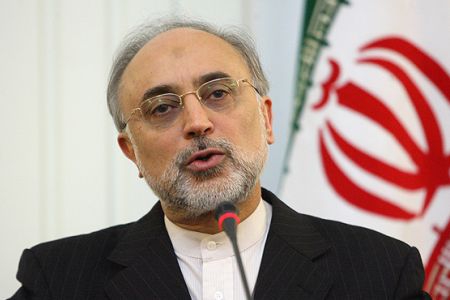Tuesday 2 October 2012 - 10:44
Story Code : 6552
Irans foreign minister blasts Israels war drum beaters
Irans foreign minister on Monday accused Israels leaders of being war drum beaters and said his country will zealously defend itself against any attack.
The Israeli ruling clan, who are war drum beaters, use the pretext of Iranian nuclear threat for all political gains, Iranian Foreign Minister Ali Akbar Salehi told the Council on Foreign Relations in New York on Monday evening.
The statements on attacking Iran, for whatever reasons it may be, is against regional and international peace and security, he added.
Mr. Salehi said Iranians would never start a war, but will use all means to defend themselves.
U.S. officials have been alarmed by Israeli threats to launch a preemptive strike on Iranian nuclear facilities. The Obama administration, while not specifically discussing a military strike, has said that all options are on the table.
Iran is working with the International Atomic Energy Agency and the 5+1 the five permanent members of the United Nations Security Council and Germany to address concerns about its nuclear program, said Mr. Salehi.
Unlike Iran, Israel is not a party to any international disarmament conventions and is a major impediment for the Middle East to be declared a nuclear-free zone, said Mr. Salehi, who was educated at the Massachusetts Institute of Technology.
Israel, he added, is the most significant source of instability and insecurity in the region and, indeed, a liability for American Middle Eastern policy.
Last week, Iranian President Mahmoud Ahmadinejad, in his address to the U.N. General Assembly, complained about threats of military action from Israel and intimidation by nuclear-armed hegemonic powers.
The next day, Israeli Prime Minister Benjamin Netanyahu urged the U.N. to place a red line on Irans efforts to enrich uranium. He warned that Iran could have a nuclear bomb by as early as next spring.
In his address, President Obama told the U.N. that he was committed to resolving the crisis over Irans nuclear program through diplomacy, but time is not unlimited.
Western nations suspect that Iran is building a nuclear weapon. Iran insists its nuclear program is intended for peaceful purposes.
Mr. Salehi said that if Iran had a nuclear weapon it would not stabilize the Middle East, in fact it would attract more threats.
International concerns over Irans nuclear program are a political issue, which requires a political solution, he said. We have not lost hope, neither us, nor the 5 + 1, he added.
Iran has been accused of meddling in Iraq and arming President Bashar Assads embattled regime in Syria.
Mr. Salehi denied Iran was doing either. Iran is a regional provider of security, he said.
Political change cannot be imposed by outsiders on Syria, where the crisis has a political solution and not a military one, he said. The U.N. estimates that more than 20,000 people have been killed in the Syrian uprising, which erupted in March of last year.
Some Arab nations have been arming the Syrian opposition, while the U.S. has provided non-lethal assistance.
Further militarization of the conflict will have serious ripple effects in our region, Mr. Salehi said, adding that Iran will maximize its efforts to find a political solution.
The closest the Iranian official would get to criticizing the Assad regime was when he said: We wish they had taken a better position vis-a-vis their people there were some mistakes committed, but this does not justify interference from outside.
Mr. Salehi defended Irans support for groups such as Hamas and Hezbollah, saying it was incumbent upon Iranians to stand up for those who are oppressed.
The Iran Project is not responsible for the content of quoted articles.
# Tags











